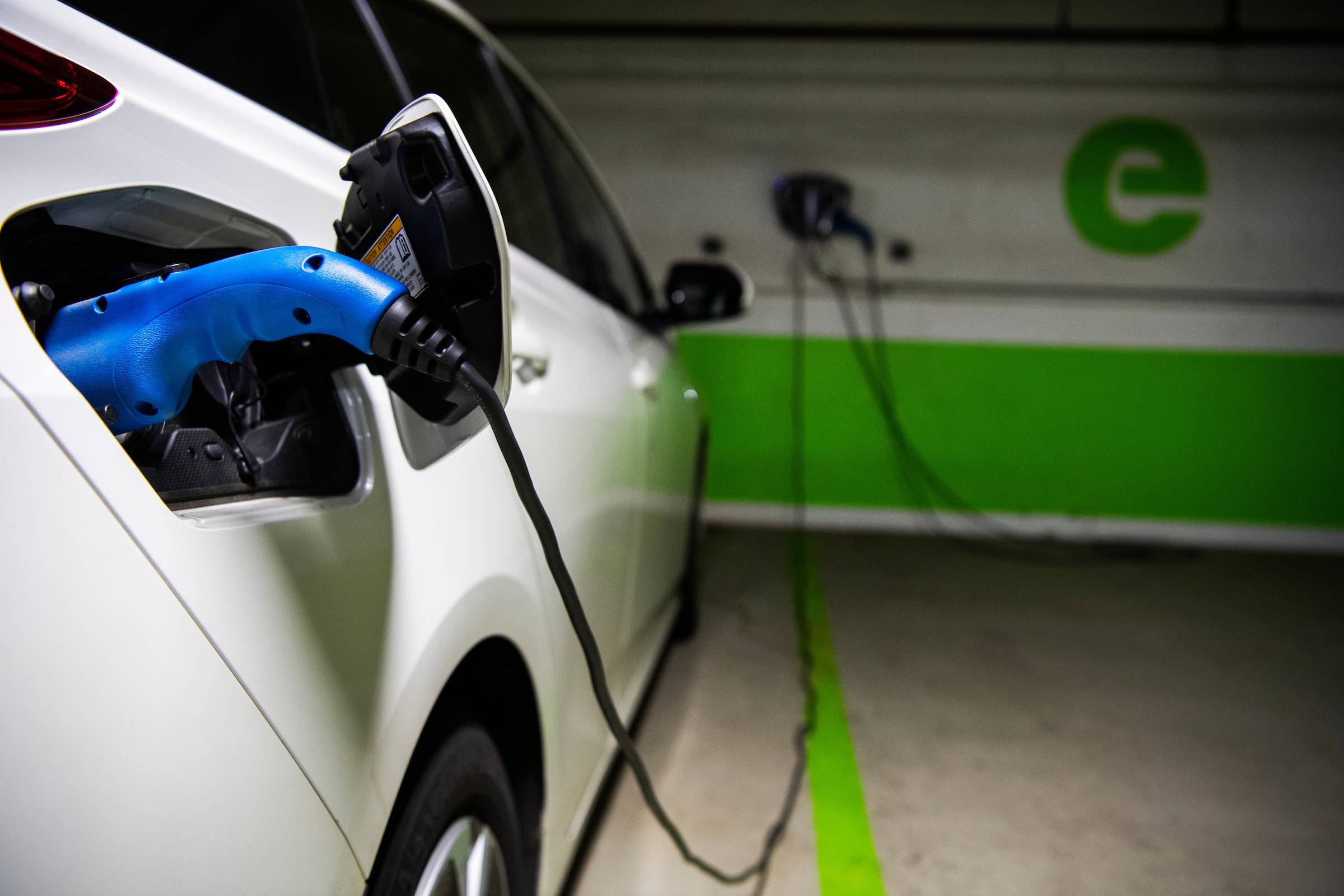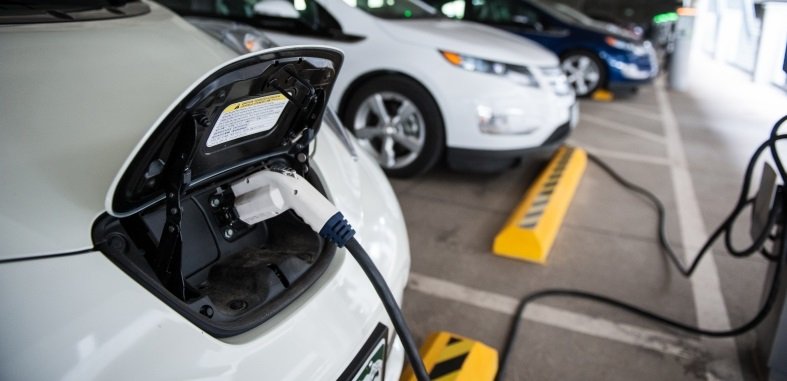
If you own an electrical car, you already know how important it to have an electric car charger nearby. A charger plugs into the car's 240-volt outlet. The charge station can increase your vehicle's range by up to 100 miles. These can also be more affordable than gasoline.
The New York Department of Transportation (NYC DOT) is making a huge investment in building a network of electric vehicle chargers to make driving a plug-in car safer and easier. The city has already installed more than 100 charging stations. Many of them are free.
The price of charging an EV might be a deterrent to buying one. The cost of charging an EV varies depending of what type of charger you choose, how large your battery is and how efficient the electricity that is delivered to your vehicle. A New York motorist can save anywhere from $800 up to $1,000 a year on fuel by charging an Electric Vehicle.

For those who park their car outside, a charging station is not the right solution. But there are other options. You can find charging stations by downloading charging station apps. These can be downloaded to your smartphone. These can then be used to locate a nearby charging station or to check if it is operational.
Another option is to have your own garage for charging your car. To provide charging for electric vehicles, many homeowners install 240-volt outlets within their garages. This is an easy and cost-effective process.
Another option is to make use of your local utility’s rebate programme. An electric vehicle could be eligible for a discount when it comes to charging. If you sign up, be aware that the utility will require you to show a credit-card to receive the discount.
PlugNYC has more information on electric vehicle chargers. PlugNYC, a network of charging stations available to the public that is managed by the City of New York as well as the New York State Department of Transportation, is a comprehensive network. They include DC fast charging stations and Level 2 charging points.

EVolve NY is a public-private partnership that will establish a network of public EV charging points across the state. The goal of the project is to make New Yorkers own an EV easier and make the state a leader on the EV scene. EVolve NY will have 140 fast chargers by 2022. Ten of these will be at JFK Airport.
Con Edison, New York City and other local and state organizations are partnering the NYC DOT to improve the EV charging infrastructure in New York. This is part of the NYC DOT's mission to reduce greenhouse gas emissions. You can drive around New York in an electric vehicle (EV) with confidence if there is some foresight.
FAQ
Is it worthwhile to become a mechanic?
This question is dependent on your life goals. If you are looking to make money, then yes. But if meaning and purpose is what you seek, then no.
If you don’t possess any mechanics skills, you won’t be able to do it. You won't become rich from it. It's unlikely that you will be famous. It is unlikely that your life will change.
You'd have to spend years learning how things work. This would mean that you would have to pay someone else for your car's repair. That's why most people don't bother doing it at all. They find something more worthwhile.
In conclusion, if money is your main goal, you should go ahead. But if you want to live a meaningful life, stay away from the mechanic's industry.
What's the difference between a mechanic and an automotive technician?
They are both similar, but not identical. Both a mechanic and an automotive technician can repair cars.
A mechanic needs to be able and quick to use their manual dexterity. They must also be able to diagnose problems accurately and repair them effectively.
A technician in automotive is more technical than a mechanic. They need to be able use tools such drills and wrenches, and read blueprints.
They must also be able to carry out complex procedures safely. They need to be familiar with various types of engines and electrical system.
They must also be able comprehend how the various parts interrelate with one another.
The result is that a mechanic often earns less than an auto technician. Both careers have many options.
How do I fix my car for a hobby?
You might be interested in cars as a hobby. You could learn how to repair them, buy parts for them, sell them or just enjoy them. If you are looking for something more, it would be an excellent hobby.
It's difficult to make this a fulltime job. It requires hard work and dedication. It requires a lot investment.
It is best to avoid getting involved in car accidents unless you have good reasons.
What qualifications do I need to be a truck mechanic?
Although you don’t have formal qualifications, you have extensive experience with engines and trucks. Your experience is invaluable as you know how to diagnose problems quickly and efficiently.
Additionally, you have a solid knowledge of diesel technology that will enable you to determine what parts are necessary to repair our vehicles.
Is it difficult to find a job as a mechanic in the automotive industry?
Yes, it's possible. Many garages list their vacancies online. Many people simply apply for the fun of it. If you want to get your foot in the door, you should try applying for a few places and see if they accept student applications. If you don't know anyone working in the industry, ask your friends and relatives. They may be happy to recommend someone.
Statistics
- Apprentice mechanics earn significantly less hourly than mechanics who have completed training, with a median wage of approximately $14.50 an hour, according to PayScale. (jobhero.com)
- The U.S. Bureau of Labor Statistics (BLS) reports that the job outlook for automotive service technicians and mechanics is expected to decline by 4% from 2019 to 2029. (indeed.com)
- According to the BLS, total auto technician employment is expected to exceed 705,000 by 2030. (uti.edu)
External Links
How To
How to become an automotive technician
A technician who works on vehicles is an automotive technician. He/she is employed at automobile dealerships, garages, service centres, and auto shops. He/she assists customers in fixing their cars, trucks or motorcycles. An automotive technician must be capable of diagnosing problems and making repairs safely, accurately and efficiently.
An associate degree from a vocational school is required for anyone who wishes to become an automotive technician. After completing this program, he/she must pass the National Institute for Automotive Service Excellence (ASE) certification exam. ASE stands for American Society of Mechanical Engineers. The ASE certification test consists of two sections. The first section tests for mechanical knowledge, the second for practical skills. To pass the test you must go to one of the authorized testing facilities. You can find these locations online or through your local automobile dealer.
A candidate must pass the state exam after passing the test to become an automotive technician. This process varies depending on where the applicant lives. Some states require candidates to complete a training program, while others let them study on their own. Some states permit technicians to work immediately after they are granted their license. Others require them to wait at least six consecutive months before they can be licensed.
An applicant should apply to a local auto shop in order to start their career as an automotive technician. Most new employees begin as apprentices once they are hired. Apprenticeships typically last three years. This is when a student can learn how to do basic repairs such as changing oil, adjusting brakes and replacing tires. Some students are taught how to repair engines and replace transmission fluids. Many schools offer classes during normal business hours. However, some schools offer evening classes if needed.
Once a student completes his/her apprenticeship, he/she becomes a journeyman. Journeymen usually spend four to five year learning how to install major systems like transmissions, differentials steering gear, suspensions, drive shafts, and steering gear. They also learn to perform complex repairs, such as remanufacturing engines, rebuilding transmissions, and troubleshooting electrical components. Because they have the experience and knowledge to do the job right, employers love hiring journeymen.
After passing the exams, candidates may be eligible to open their own shop if they pass all requirements. The Bureau of Labor Statistics estimates that there were nearly 1.7 million jobs available for automotive mechanics in 2010. The Bureau of Labor Statistics predicted that this number would rise by 18% from 2009 to 2020. If a candidate decides to open his/her own shop, he/she should prepare to invest many thousands of dollars in equipment and supplies.
Automotive technicians' salaries depend on many factors such as the employer, whereabouts, education level and experience. On average, a jobless person could expect to earn $20,000 annually. Someone with only a high school diploma could earn around $21,000 per year. Earnings for those with an associate's diploma are approximately $24,000/year. Technicians with a bachelor’s degree made about $27,000 annually. Master's degree holders make around $32,000 annually. A common trend is for salary increases to occur so a professional making less than $30,000 can reasonably expect to be earning $40,000 or more within a few years.